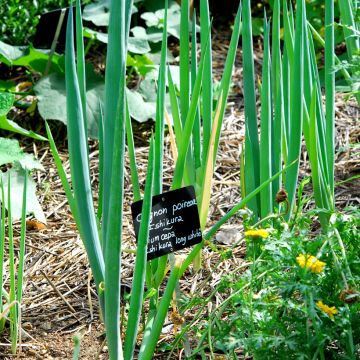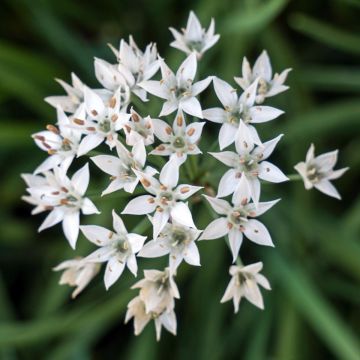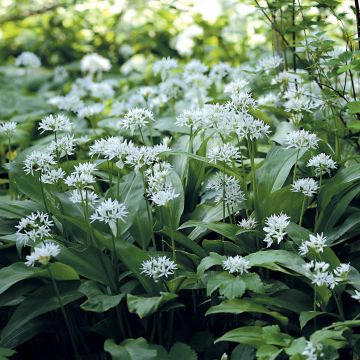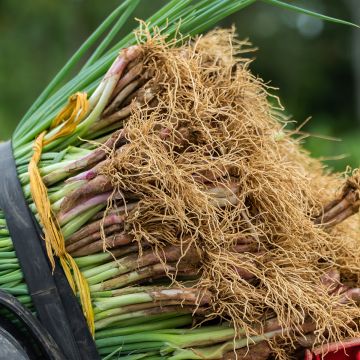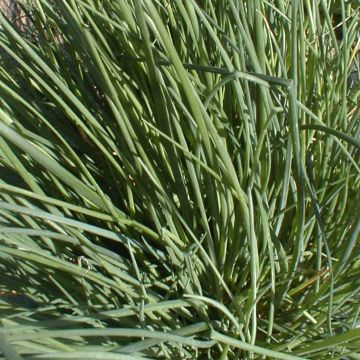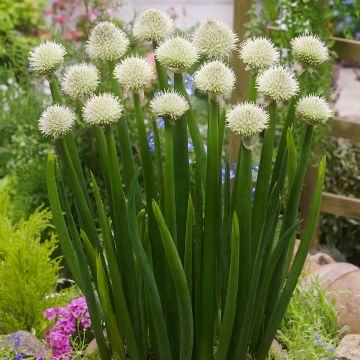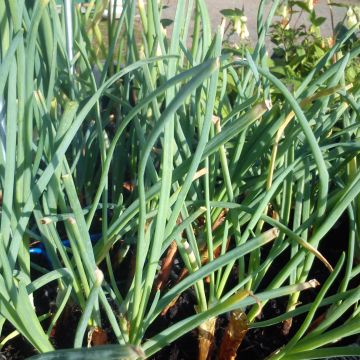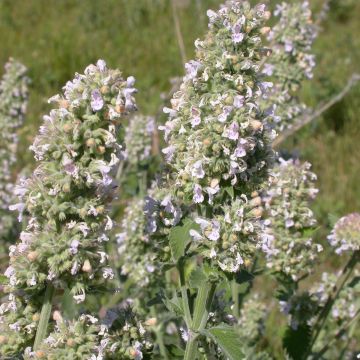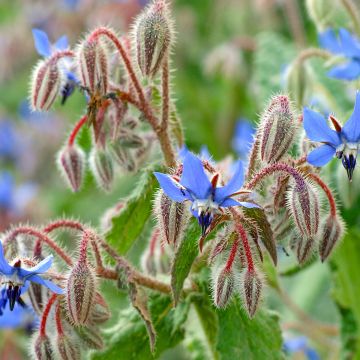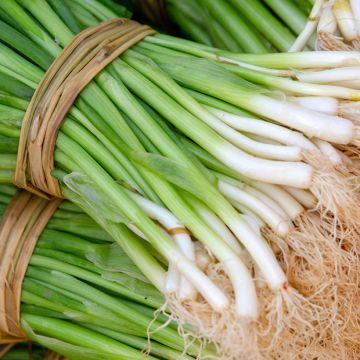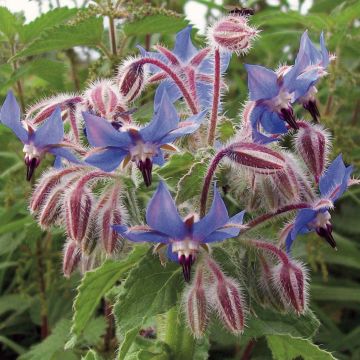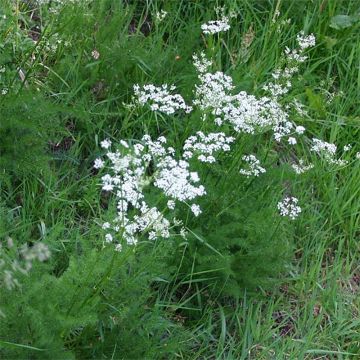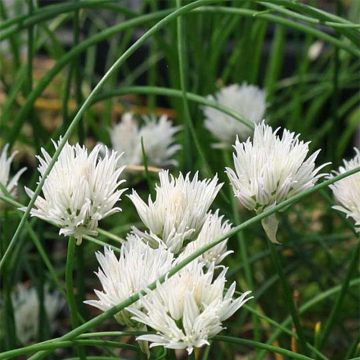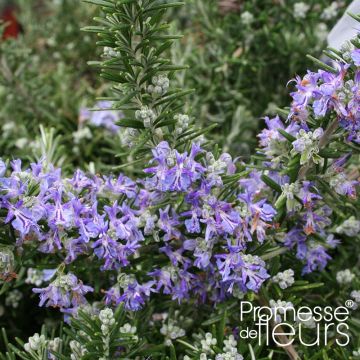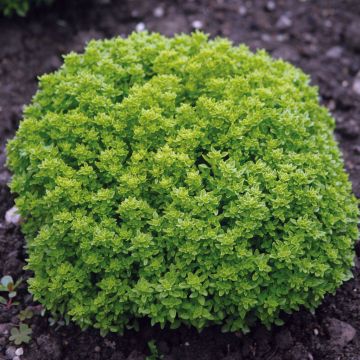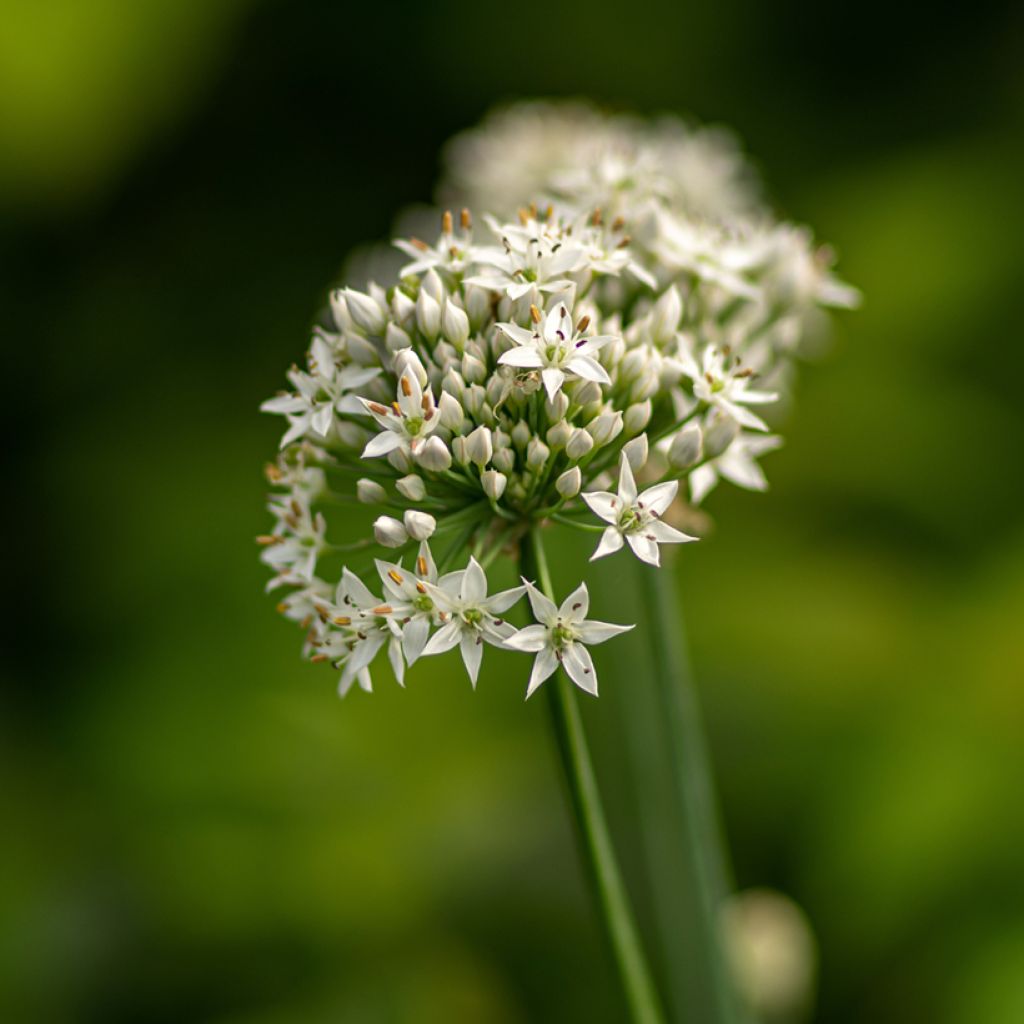

Allium ramosum
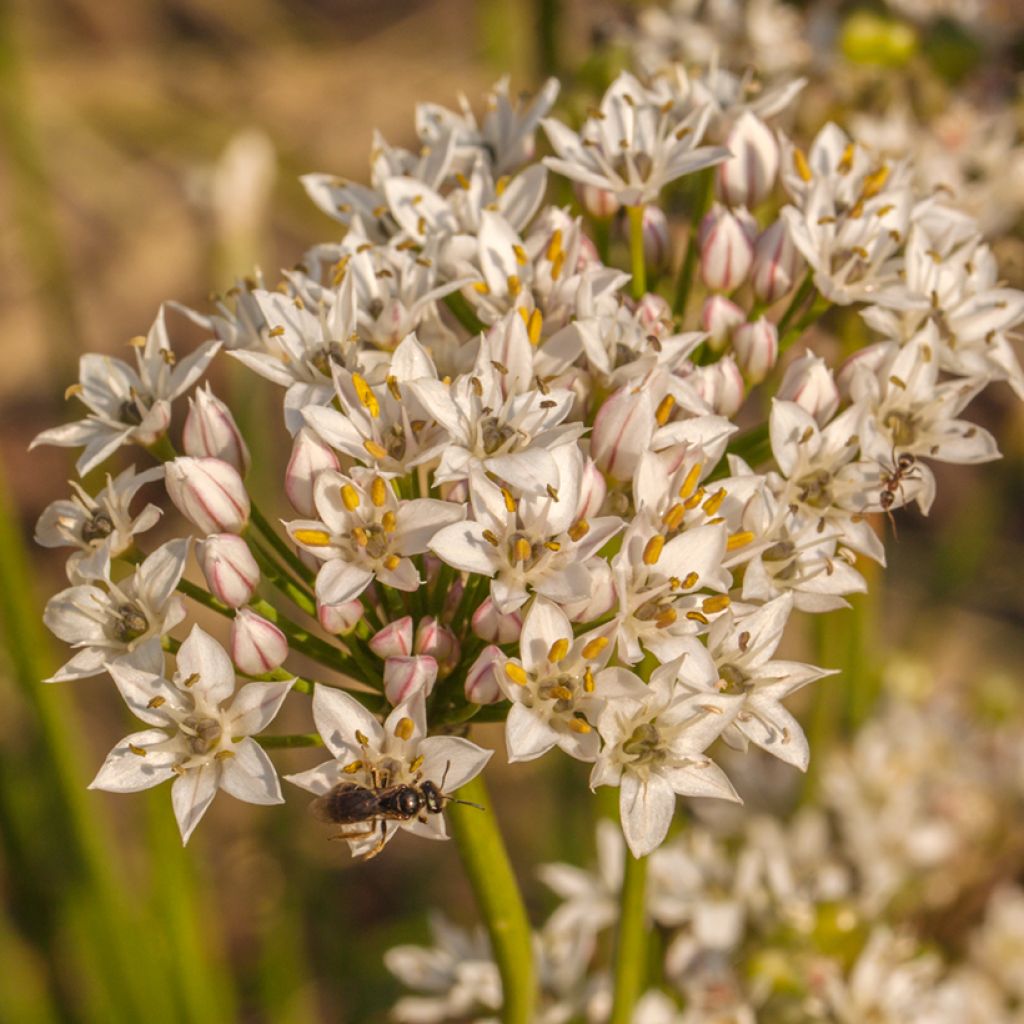

Allium ramosum
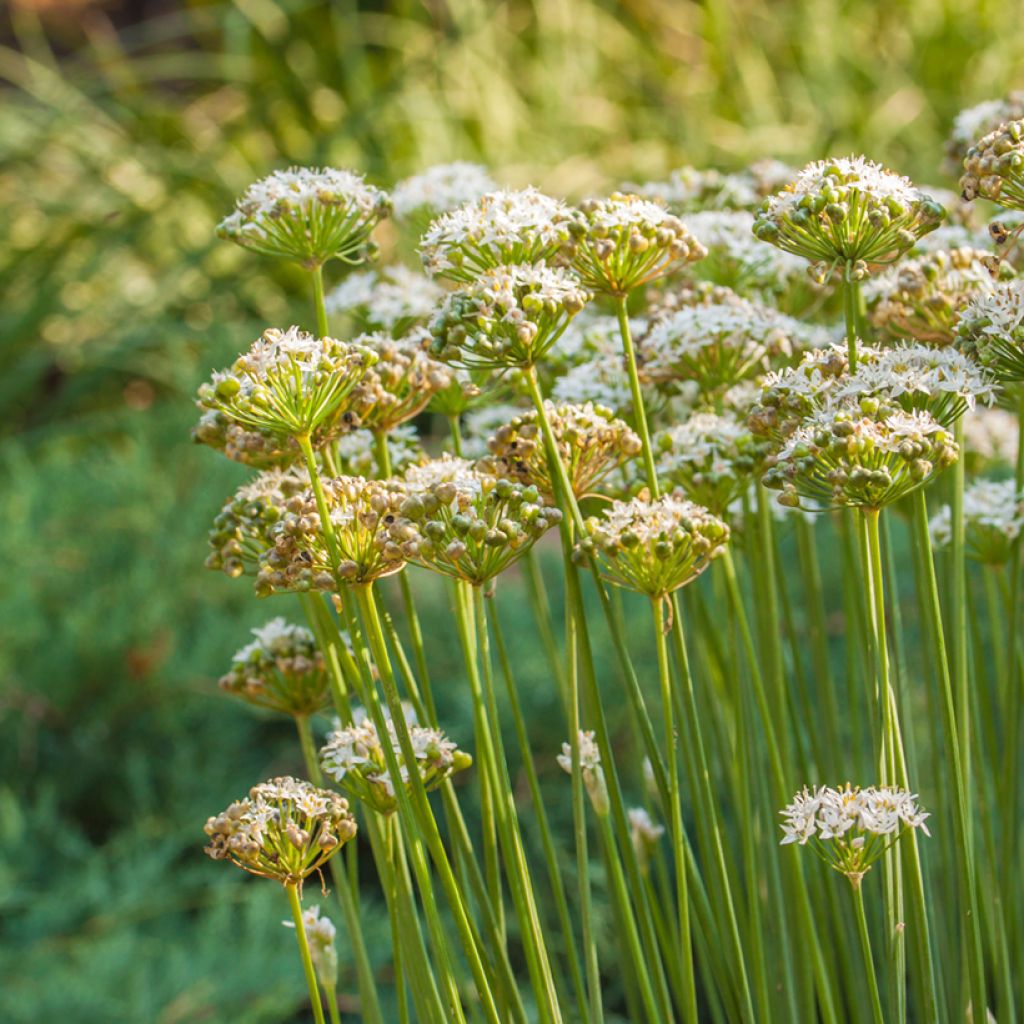

Allium ramosum
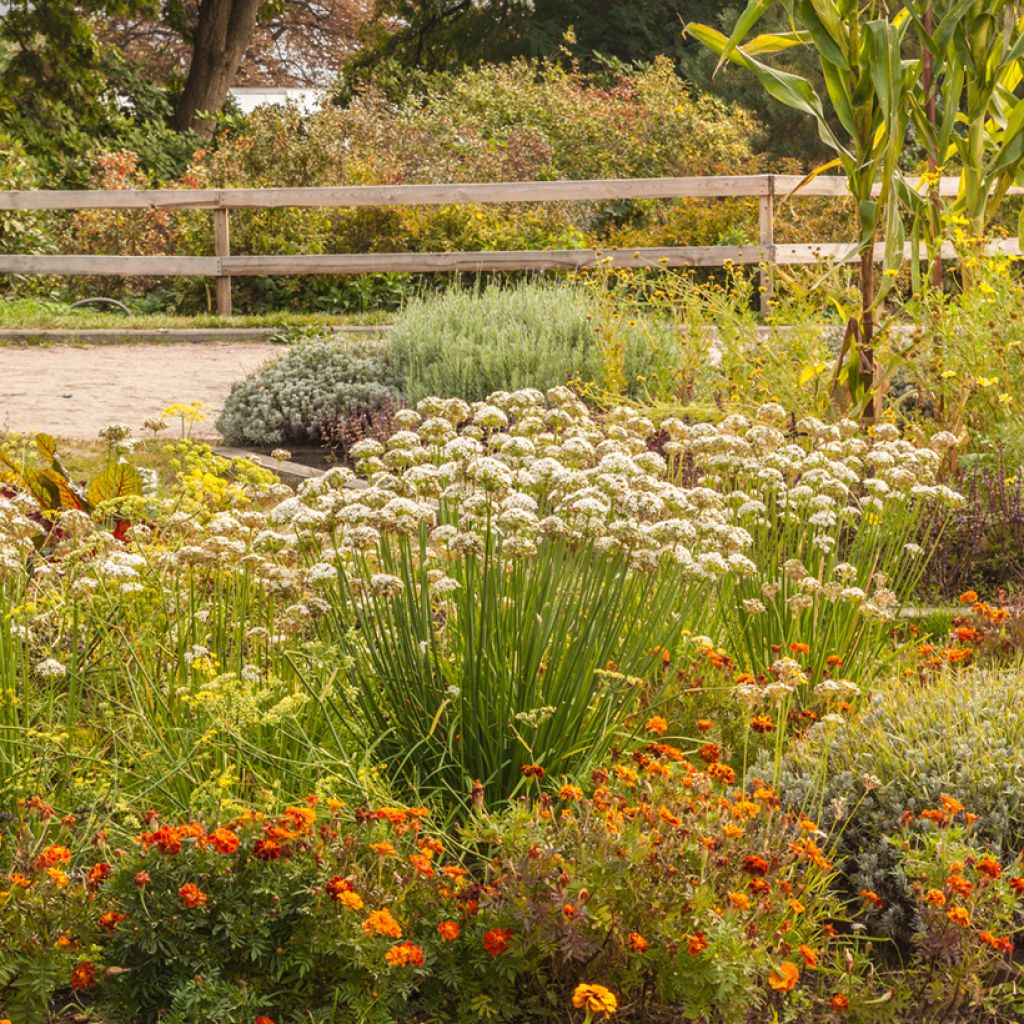

Allium ramosum
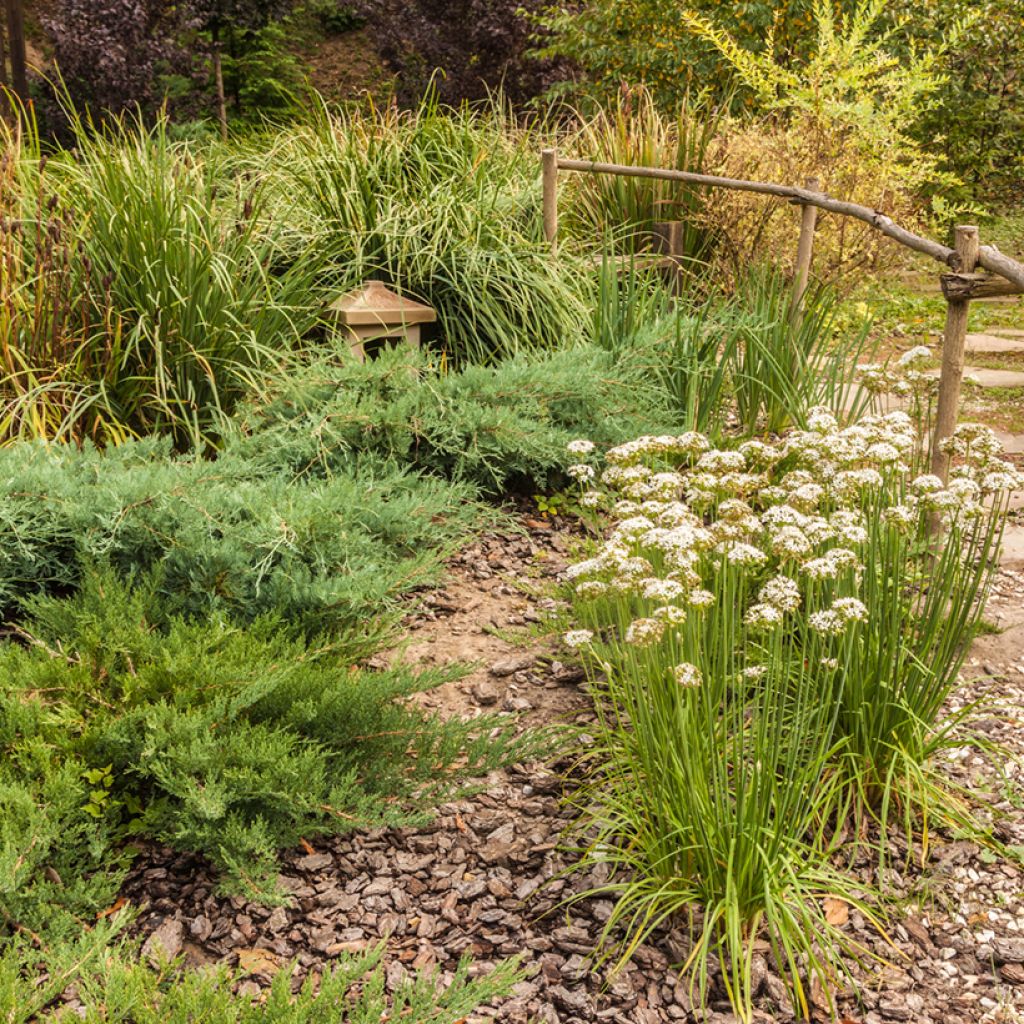

Allium ramosum
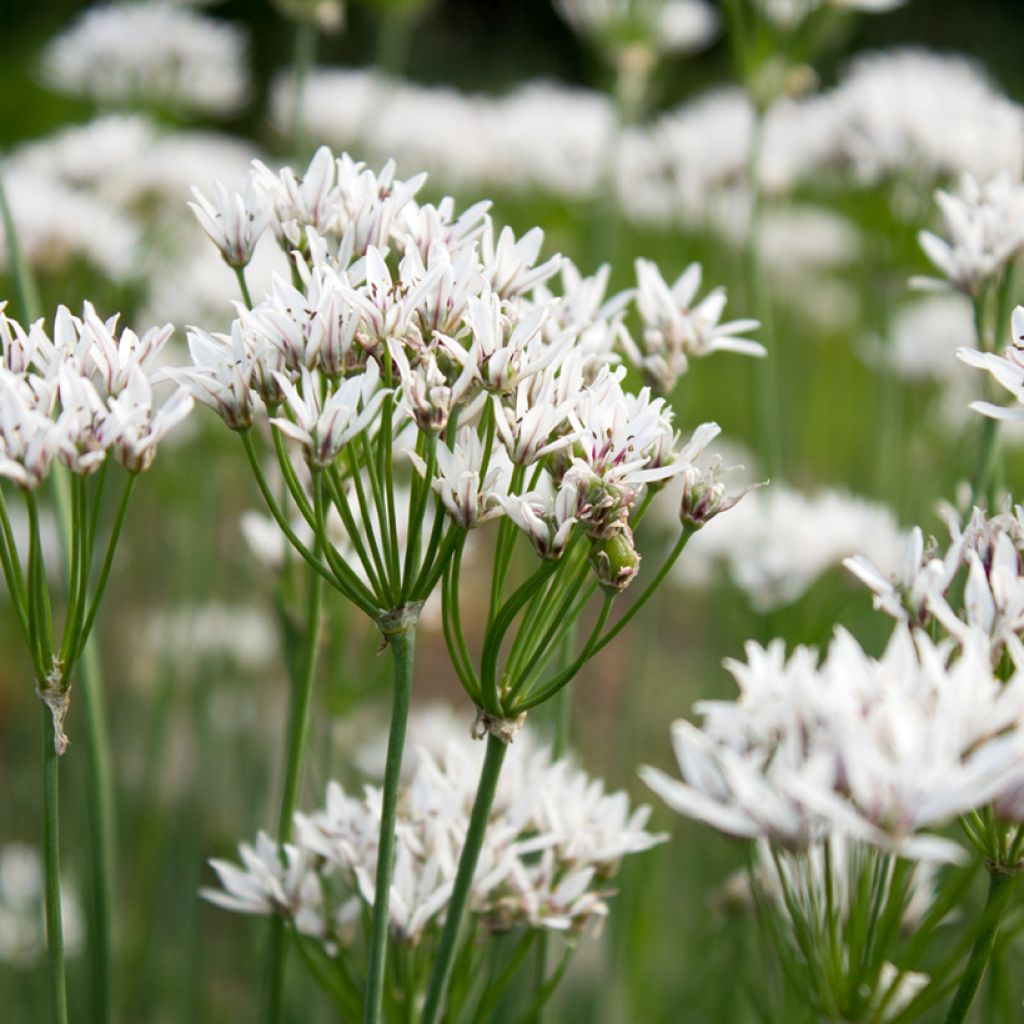

Allium ramosum
Allium ramosum
Allium ramosum
Fragrant-flowered garlic, Chinese chives
Special offer!
Receive a €20 voucher for any order over €90 (excluding delivery costs, credit notes, and plastic-free options)!
1- Add your favorite plants to your cart.
2- Once you have reached €90, confirm your order (you can even choose the delivery date!).
3- As soon as your order is shipped, you will receive an email containing your voucher code, valid for 3 months (90 days).
Your voucher is unique and can only be used once, for any order with a minimum value of €20, excluding delivery costs.
Can be combined with other current offers, non-divisible and non-refundable.
Why not try an alternative variety in stock?
View all →This plant carries a 6 months recovery warranty
More information
We guarantee the quality of our plants for a full growing cycle, and will replace at our expense any plant that fails to recover under normal climatic and planting conditions.
Would this plant suit my garden?
Set up your Plantfit profile →
Description
The Fragrant Garlic or Chinese Chives, in Latin Allium ramosum, is a bulbous plant, used as a condiment and for decoration. It develops thin flat leaves, with a fairly mild and sweet flavour, similar to onion. It is also loved for its pretty, white, fragrant and melliferous umbel flowers, which appear for several weeks in summer. It can be planted in spring or autumn, in sunny locations, in any light soil that is not too dry.
Allium ramosum, also known as Allium tataricum, Allium odorum, Allium fragrans, is commonly called fragrant garlic or Chinese chives. It is a perennial plant belonging to the Amaryllidaceae family. It is a botanical species native to regions in Kazakhstan, Mongolia, Siberia, the Russian Far East, and northern China. It naturally grows at altitudes ranging from 500 to 2,100 m. The small bulbs of Allium ramosum are narrow and form dense clusters. The sturdy and upright flower stalks can reach up to 60 cm in height. The plant spreads to a similar width, forming a compact upright clump. The linear, keeled leaves are shorter than the flower stalks. They are deciduous in winter. The umbels consist of numerous small tightly packed flowers, composed of white to pinkish tepals with a red mid vein. The flowering period extends from June-July to August-September, attracting many pollinating insects. They have a pleasant fragrance, but their scent is only noticeable up close.
Fragrant garlic can be planted in sunny borders and beds or vegetable gardens. Its cut flowers can also be used in bouquets. For a harmonious garden, it can be paired with common chives, Rose du Tarn garlic, for a diversity of shapes and flavours, and Nepeta mussinii, whose silver foliage contrasts beautifully with the garlic flower stalks. Common sage will add an aromatic touch to this combination. All these plants create a useful and decorative plant collection.
This plant is widely used in northern China and Mongolian cuisine. The leaves, with a mild and pleasant onion flavour, can be consumed raw or cooked, and the raw flowers are often used as garnish in salads. The small 10 mm diameter bulbs can also be used.
In Mongolia, the plant is harvested between May and July, salted, and preserved for winter and then used to season boiled mutton or stuff dumplings. The flowers are also picked and salted for culinary use. In addition to its culinary uses, Allium ramosum is known for its medicinal properties in treating stomach ailments.
Gardening tip: To reduce watering, we recommend mulching the soil with thin successive layers of grass clippings, if possible mixed with dead leaves. This protection, which keeps the soil moist, also limits weed growth. The mulch should ideally be renewed every year.
Report an error about the product description
Allium ramosum in pictures




Plant habit
Flowering
Foliage
Botanical data
Allium
ramosum
Amaryllidaceae
Fragrant-flowered garlic, Chinese chives
Allium tataricum, Allium odorum, Allium fragrans
East Asia
Other Spring onion
View all →Planting and care
Choose a sunny or semi-shady location. Chinese Chives are grown like chives. They thrive next to carrots (protection against flies) but do not appreciate being next to vegetables from the Fabaceae family (beans, peas, broad beans).
Garlic chives prefer slightly moist, loose, not too compact and moderately rich soils. If compost is needed, it is best applied in autumn, in the form of well-rotted compost, by raking it in to a depth of 5 cm, after having loosened the soil well. Chives can also be grown in pots.
Plant in spring, from March to May, or in autumn, in September-October. The plants should be spaced 20 cm apart in all directions. Loosen the soil deeply. Dig a hole (3 times the volume of the root ball), place the root ball and cover with soil. Firmly press down and water to keep the soil moist.
Chives produce a beautiful white flowering, but it is advisable to cut the stems before they flower to preserve the aroma of the foliage.
This plant is susceptible to parasites that attack onions (onion fly and leek moth).
Planting period
Intended location
Care
This item has not been reviewed yet - be the first to leave a review about it.
Similar products
Haven't found what you were looking for?
Hardiness is the lowest winter temperature a plant can endure without suffering serious damage or even dying. However, hardiness is affected by location (a sheltered area, such as a patio), protection (winter cover) and soil type (hardiness is improved by well-drained soil).

Photo Sharing Terms & Conditions
In order to encourage gardeners to interact and share their experiences, Promesse de fleurs offers various media enabling content to be uploaded onto its Site - in particular via the ‘Photo sharing’ module.
The User agrees to refrain from:
- Posting any content that is illegal, prejudicial, insulting, racist, inciteful to hatred, revisionist, contrary to public decency, that infringes on privacy or on the privacy rights of third parties, in particular the publicity rights of persons and goods, intellectual property rights, or the right to privacy.
- Submitting content on behalf of a third party;
- Impersonate the identity of a third party and/or publish any personal information about a third party;
In general, the User undertakes to refrain from any unethical behaviour.
All Content (in particular text, comments, files, images, photos, videos, creative works, etc.), which may be subject to property or intellectual property rights, image or other private rights, shall remain the property of the User, subject to the limited rights granted by the terms of the licence granted by Promesse de fleurs as stated below. Users are at liberty to publish or not to publish such Content on the Site, notably via the ‘Photo Sharing’ facility, and accept that this Content shall be made public and freely accessible, notably on the Internet.
Users further acknowledge, undertake to have ,and guarantee that they hold all necessary rights and permissions to publish such material on the Site, in particular with regard to the legislation in force pertaining to any privacy, property, intellectual property, image, or contractual rights, or rights of any other nature. By publishing such Content on the Site, Users acknowledge accepting full liability as publishers of the Content within the meaning of the law, and grant Promesse de fleurs, free of charge, an inclusive, worldwide licence for the said Content for the entire duration of its publication, including all reproduction, representation, up/downloading, displaying, performing, transmission, and storage rights.
Users also grant permission for their name to be linked to the Content and accept that this link may not always be made available.
By engaging in posting material, Users consent to their Content becoming automatically accessible on the Internet, in particular on other sites and/or blogs and/or web pages of the Promesse de fleurs site, including in particular social pages and the Promesse de fleurs catalogue.
Users may secure the removal of entrusted content free of charge by issuing a simple request via our contact form.
The flowering period indicated on our website applies to countries and regions located in USDA zone 8 (France, the United Kingdom, Ireland, the Netherlands, etc.)
It will vary according to where you live:
- In zones 9 to 10 (Italy, Spain, Greece, etc.), flowering will occur about 2 to 4 weeks earlier.
- In zones 6 to 7 (Germany, Poland, Slovenia, and lower mountainous regions), flowering will be delayed by 2 to 3 weeks.
- In zone 5 (Central Europe, Scandinavia), blooming will be delayed by 3 to 5 weeks.
In temperate climates, pruning of spring-flowering shrubs (forsythia, spireas, etc.) should be done just after flowering.
Pruning of summer-flowering shrubs (Indian Lilac, Perovskia, etc.) can be done in winter or spring.
In cold regions as well as with frost-sensitive plants, avoid pruning too early when severe frosts may still occur.
The planting period indicated on our website applies to countries and regions located in USDA zone 8 (France, United Kingdom, Ireland, Netherlands).
It will vary according to where you live:
- In Mediterranean zones (Marseille, Madrid, Milan, etc.), autumn and winter are the best planting periods.
- In continental zones (Strasbourg, Munich, Vienna, etc.), delay planting by 2 to 3 weeks in spring and bring it forward by 2 to 4 weeks in autumn.
- In mountainous regions (the Alps, Pyrenees, Carpathians, etc.), it is best to plant in late spring (May-June) or late summer (August-September).
The harvesting period indicated on our website applies to countries and regions in USDA zone 8 (France, England, Ireland, the Netherlands).
In colder areas (Scandinavia, Poland, Austria...) fruit and vegetable harvests are likely to be delayed by 3-4 weeks.
In warmer areas (Italy, Spain, Greece, etc.), harvesting will probably take place earlier, depending on weather conditions.
The sowing periods indicated on our website apply to countries and regions within USDA Zone 8 (France, UK, Ireland, Netherlands).
In colder areas (Scandinavia, Poland, Austria...), delay any outdoor sowing by 3-4 weeks, or sow under glass.
In warmer climes (Italy, Spain, Greece, etc.), bring outdoor sowing forward by a few weeks.






























